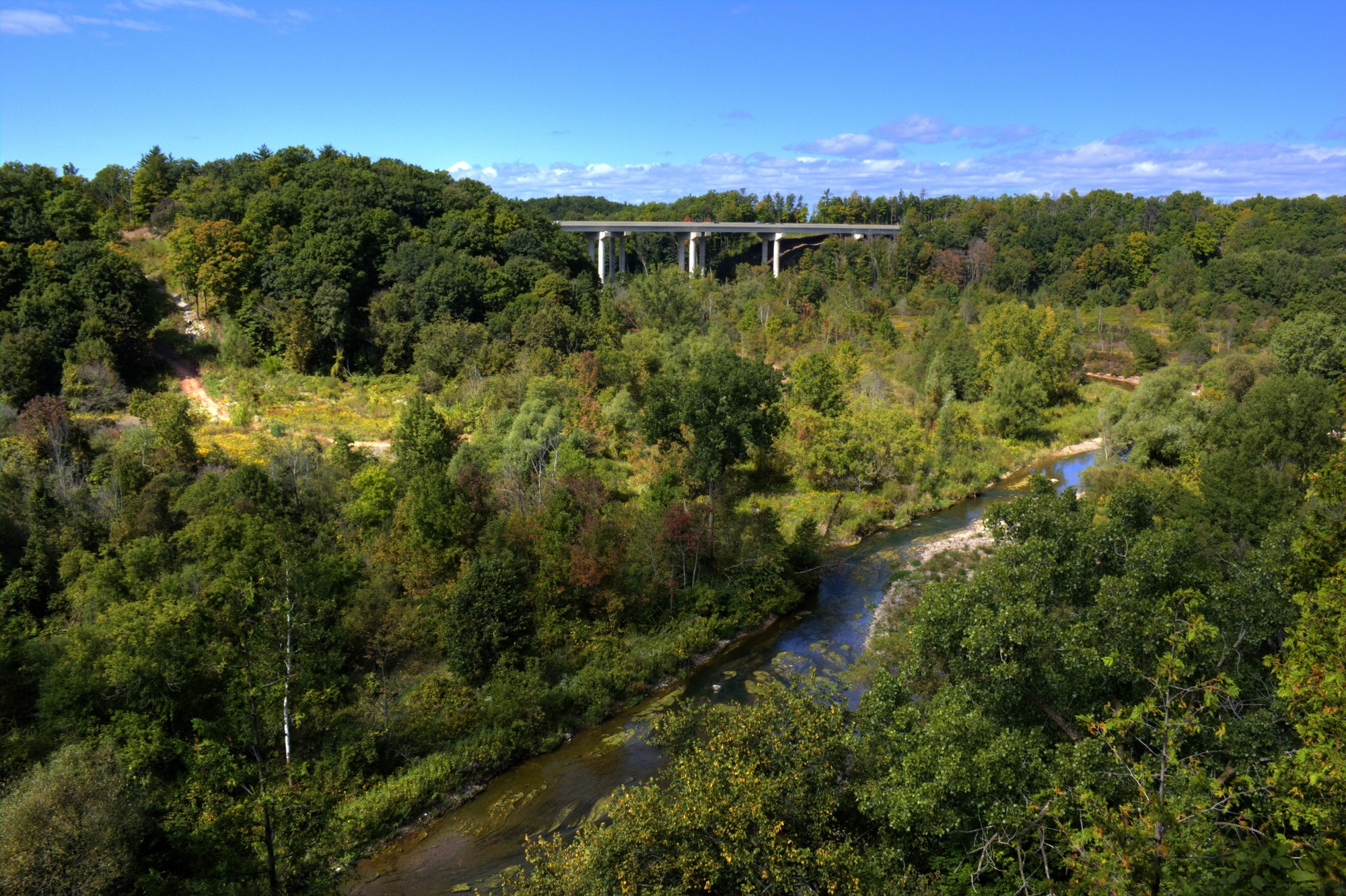As the impacts of climate change are experienced with greater frequency and intensity around the world and here in our watershed, Conservation Halton is committed to working with our communities, municipalities and partners on climate change action.
In 2021, Conservation Halton commissioned a carbon emissions report, which found that Conservation Halton currently emits 524.61 tonnes of CO2e through our operations, which is equivalent to having 163 passenger vehicles on the road for one year. With this baseline established, Conservation Halton has committed to reducing our emissions by 30 percent by the end of 2024.

Conservation Halton contributes to climate change mitigation in a number of ways, but primarily through the capture and storage of carbon (also known as “carbon sequestration”) provided by our conservation areas. We own more than 10,000 acres of natural area in the watershed, including creeks, streams, wetlands, lakes, forests and meadows, each of which absorb more carbon from the atmosphere than they release. Also, through our restoration efforts, Conservation Halton works to strengthen the ecological function of these areas, which increases their capacity for carbon sequestration.
As important as it is for us to mitigate the impacts of climate change, Conservation Halton also helps our communities adapt to many of these impacts, such as flooding. Climate change has increased the risk of flooding in our communities, as a result of more severe rain storms and more sudden spring thaws. The flood monitoring and management program at Conservation Halton works to reduce risk through prevention, prediction, protection and precaution.
Conservation Halton is responsible for watershed management, which includes planning, permitting and regulations. This means that permission is required from Conservation Halton for the construction of homes, businesses, communities, infrastructure, etc. near watercourses to prevent risk of flooding. As climate change increases the risk of flooding in our communities, it is important for us to work with homeowners, landowners, developers and municipalities in this way for the purpose of adaptation.
Much like adaptation, Conservation Halton has an important role to play in supporting the resilience of our communities to the impacts of climate change. Climate change has increased the risk of flooding in our communities, but we provide environmental assistance programs for homeowners and landowners, both private and public, to increase the resilience of their properties. For instance, Conservation Halton has created more natural landscapes, constructed permeable infrastructure and integrated elements of low impact development into many of these properties, which has benefits not only for those property owners, but for the entire community in which they live.